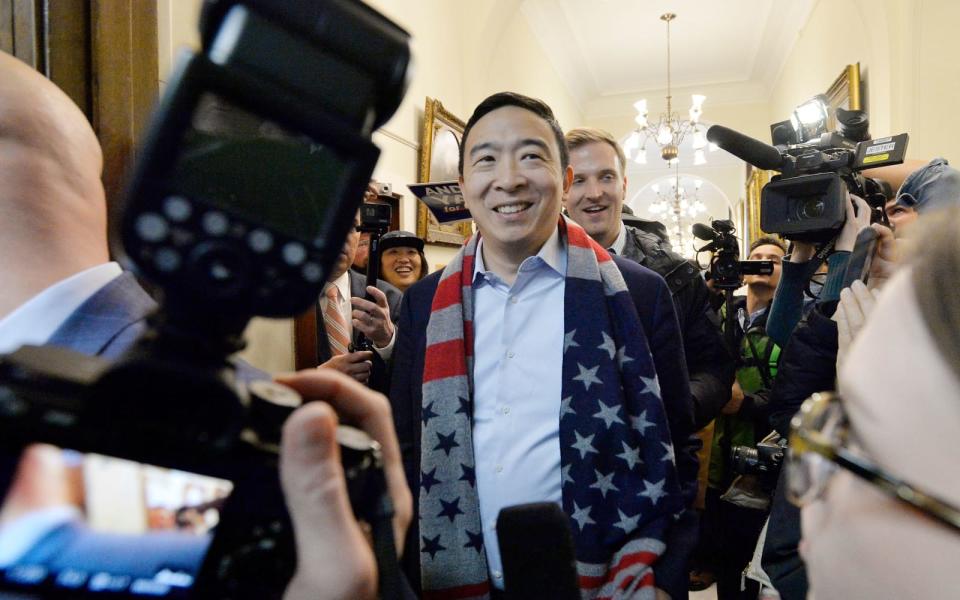Presidential hopeful Andrew Yang wants your data to be your property
That’s part of his four-pronged tech policy.
Andrew Yang, the tech entrepreneur turned Democratic presidential hopeful, may not be a leading candidate in the race, but he has gained attention for his unique ideas about how to address technology -- the companies behind it and the impact it's having on the country. He has proposed giving every American $12,000 per year to soften the blow of jobs lost to automation, and he has toyed with campaigning via hologram. While these ideas have come out in bits and pieces, Yang officially revealed his comprehensive tech policy today.
Yang's plan is a four-pronged approach. It calls for treating data like property and establishing a Digital Bill of Rights, creating a Department of the Attention Economy to minimize the health impacts of modern tech, stopping the spread of misinformation, as well as a new approach to regulating tech companies.
In a blog post announcing his plans, Yang wrote:
"The advancement of technology in America has driven the advancement of humanity nationally and globally. But technology has also outpaced our government's understanding of it, and regulations are falling short of protecting us from Big Tech companies that are prioritizing profits over our well-being."
Yang says personal data is the fastest growing industry in the US, and he believes citizens should have more control, like the ability to see how their data is being used and opt out if they choose. He wants to study the impact technology is having on "kids' brains, socio-emotional states, and cognitive and physical development," and he's calling for accountability from Facebook, Instagram and Twitter. Regarding misinformation, Yang writes, "We must address once and for all the publisher vs. platform grey area that tech companies have lived in for years."
Yang also says breaking up tech giants, as Elizabeth Warren proposes, is the wrong approach. Instead, he says we need politicians who understand technology and a modern way to regulate it.
"In order to regulate technology effectively, our government needs to understand it. It's embarrassing to see the ignorance some members of Congress display when talking about technology, and anyone who watched Congress question Mark Zuckerberg is well aware of this," Yang wrote in his blog post.

 Yahoo Finance
Yahoo Finance 

